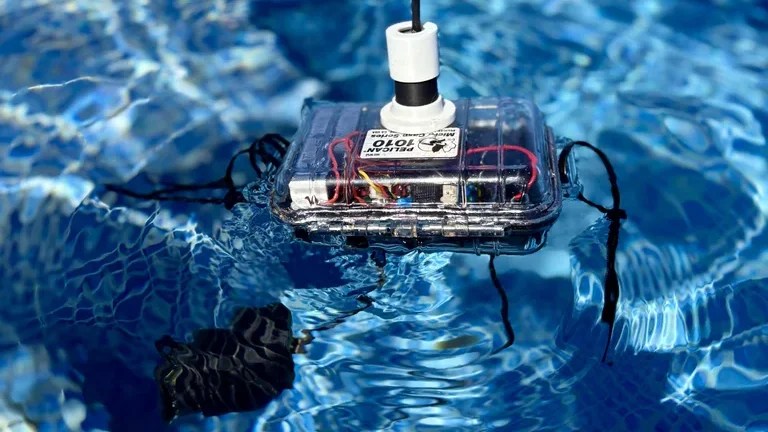A new floating ocean sensor has been deployed offshore from Maui to monitor local ocean conditions. The initiative, led by a project known as rabbitcreek, aims to gather critical data on water temperature, turbidity, and wave motion. This innovative device utilizes a combination of off-the-shelf components to provide real-time insights into the marine environment.
The core of this sensor is the Xiao ESP32-S3 microcontroller, which is connected to a variety of measurement tools. A one-wire temperature sensor records the water temperature, while a DF Robot turbidity sensor assesses water clarity. Additionally, an MPU6050 gyro and accelerometer gauge the movement of the waves, contributing to a comprehensive picture of the ocean’s conditions.
To facilitate communication over long distances, the device employs a Wio-SX1262 radio kit. This allows it to send LoRa signals that exceed the range limitations of the ESP32’s built-in WiFi and Bluetooth capabilities. The entire sensor assembly is housed in a 3D-printed casing, ensuring durability and protection against the elements, while the electronic components are secured within a waterproof Pelican case.
The project exemplifies how accessible technology can be harnessed for environmental monitoring. rabbitcreek has suggested that the utility of such sensors would increase significantly if a network of these devices were established, contributing to a larger dataset for analysis. This initiative aligns with a growing trend in citizen science, where individuals leverage technology to gather valuable ecological data.
Citizen science projects like this one have gained traction in recent years, showcasing the potential for community involvement in scientific research. As ocean conditions continue to change, the data collected from these sensors could provide essential insights for researchers and environmentalists alike.
The team encourages others engaged in similar ocean monitoring projects to share their findings, emphasizing the collaborative spirit of citizen science. This floating ocean sensor represents a step forward in understanding and preserving marine ecosystems, demonstrating the impact of grassroots innovation on environmental stewardship.





































































